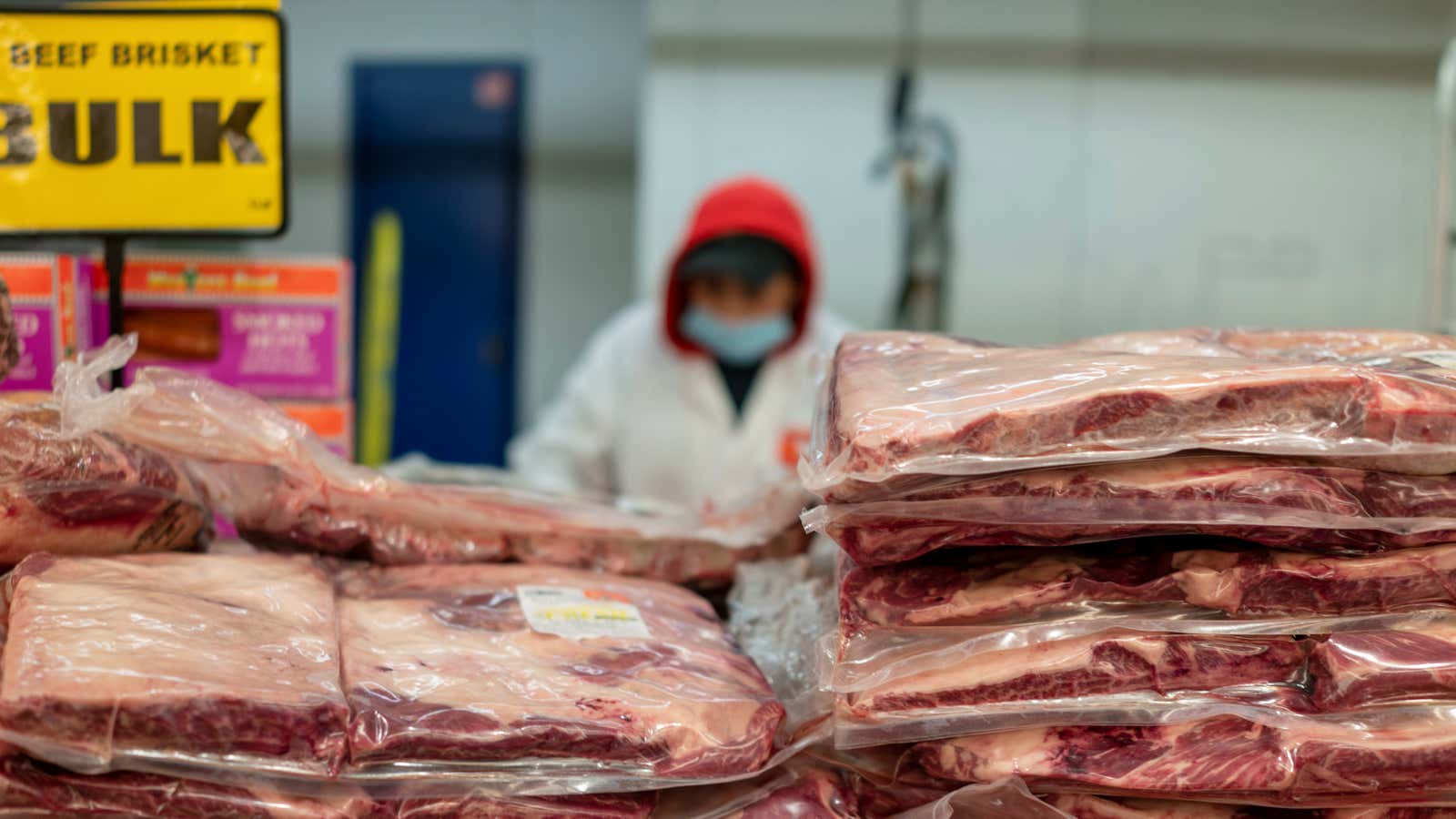Profits of big meatpacking companies have soared in the pandemic. Now the Biden administration is going after the industry, putting blame on big corporations for increasing their earnings at the expense of both farmers and consumers.
In November, US meat prices were up 12.8% year-over-year, surpassing the overall inflation rate of 6.8%, according to the US Bureau of Labor Statistics. Labor shortages and plant closures during earlier stages of the pandemic contributed to the higher beef prices, but the White House also points to the concentrated power of the largest meatpacking companies.
Just four companies control an estimated 82% of the US beef market, up from 25% in the mid-1970s. (The largest, Tyson Foods, saw its 2021 net income rise nearly 50% to more than $3 billion.)
Meanwhile, profits have dwindled for farmers. Fifty years ago, the administration says, ranchers got more than $0.60 of every $1 a consumer spent on beef. Their take is down to $0.39 per $1 today.
The White House is offering support to smaller meat processors
The White House said it will allocate $1 billion from the American Rescue Plan, a $1.9 trillion stimulus package providing aid to those affected by covid-19, to expand the capacity of independent meat processors. It also proposed stricter labeling requirements and stronger enforcement of rules against pricing abuses by meatpackers, with the aim of creating more competition and bringing down prices.
But experts say it’s not clear the White House’s plan will be that meaningful, or that quick to bring price relief.
Expanding plant capacity of independent producers is a “three- to five-year process at best, and it’s very challenging to do,” says Peter Carstensen, an emeritus professor of law at the University of Wisconsin-Madison and a former antitrust attorney at the US Justice Department.
What could have a swifter, more meaningful effect on the market, Carstensen says, is Biden’s pledge to better enforce regulation of the Packers and Stockyards Act, which dates back to 1921 and is meant to protect farmers from “unfair, deceptive, unjustly discriminatory and monopolistic practices” by meatpackers. (The big meatpacking companies have spent millions to settle price fixing over the years and have repeatedly denied any wrongdoing.)
Government funding for new entrants could give the industry a bit of a jolt, but subsidies are usually “not a market solution to a problem,” says Herbert Hovenkamp, a University of Pennsylvania law professor who focuses on antitrust issues. “Eventually, you want to establish firms that can stand on their own two feet.”
Are there better solutions to bringing down high meat prices?
Public pressure could push the big meat companies to expand production on their own and lower their prices to take the heat off. But that won’t necessarily help farmers in the long run, as the companies could again raise prices when they want, Carstensen says.
A better solution is to break up the industry, by creating policies that prevent companies from owning the animals they slaughter or by limiting their business to one form of animal protein, says Austin Frerick, deputy director of the Thurman Arnold Project at Yale University, an antitrust research center.
“This isn’t rocket science,” he says. “Like, we’re not trying to regulate the search engine. This is just a [type of] company that got too big.”
